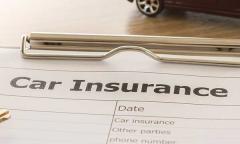Driving agencies including the Driver and Vehicle Licensing Agency (DVLA)
If you've had a seizure you must tell the driving agency - the Driver and Vehicle Licensing Agency (DVLA) in Great Britain, or the Driver Vehicle Agency (DVA) in Northern Ireland. You will also have to tell your insurance company.
How the driving regulations apply to you will depend on the type of seizures you have now, the type of seizures you have had previously, and the type of licence you have (Group 1 or Group 2).
If you have epilepsy and are still having seizures, you may be able to get help with travel costs.
The driving agencies
The driving agencies license cars and drivers for driving on public roads. In Great Britain (England, Scotland and Wales) it is the Driver and Vehicle Licensing Agency (DVLA) . In Northern Ireland it is the Driver and Vehicle Agency (DVA). If you have a driving licence, by law it is your duty to tell the driving agency about any medical condition that may affect your ability to drive, including epilepsy. This is a condition of holding a driving licence. If you have a driving licence and have a seizure of any kind, in most cases you must stop driving. You are responsible for telling either the DVLA or DVA and returning your licence to them.
Epileptic seizures are specifically included in the Road Traffic Act 1988. This means that if you have one or more seizures, by law you must meet certain medical standards in order to have a driving licence.
The DVLA’s ‘Assessing fitness to drive’ sets out the medical standards for driving, advised by expert medical panels, and based on UK legislation. Only the driving agencies can decide whether a licence can be issued. The standards apply even if you have had only one seizure, and whether you are taking anti-seizure medication (ASM) or not.
The driving regulations for epilepsy cover all epileptic seizures, including seizures where you are conscious, myoclonic seizures, focal seizures (auras), and seizures where you lose consciousness.
If you are not sure how these regulations apply to you, contact the driving agency. You can download the DVLA factsheet for people with epilepsy (INS9) from the DVLA website.
Learning to drive
If you have epilepsy and want to learn to drive, you need to meet the medical standards for the type of seizures you have. You will need to tell the driving agency about your epilepsy and fill in a regular application form.
Information produced: May 2023
What the driving regulations mean for you
This information is for people who have epilepsy and covers Group 1 (cars and motorbikes) and Group 2 (buses, coaches and lorries) licences.
Driving regulations
When you can drive depends on the type of seizures you have now, the type of seizures you have had previously, and what type of licence you have.
Car insurance
If you stop driving due to a seizure, you need to tell your insurance company as part of your insurance terms and conditions. If you don't tell them, this could invalidate your insurance and may affect your insurance in the future.



